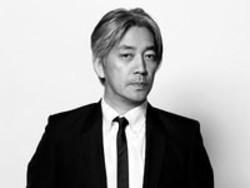

#RYUICHI SAKAMOTO BIBO NO AOZORA FREE#
Bibo no Aozora – Ryuichi Sakamoto – free sheet music for grand piano.
#RYUICHI SAKAMOTO BIBO NO AOZORA MOVIE#
bibo noaozora music from the movie babel.

If a piece of music was written for a film, the memories of many images cling around the piece in the beginning, then those images gradually go away. Naturally, I would lose the depth of the emotions with some pieces as time goes on. When you have created an emotionally penetrating piece of music, and labor over the recording-and/or, perhaps continue to play it many times live-does the personal poignance for you fade as a listener? Does it stay the same? Or gain significance with time? A new kind of palette and color and system-that’s what I was eager to get. It wouldn't do much if you even hit all 88 keys of the piano. Around that time, I thought everything was already done and experimented in the Western music system.

So, I was thrilled when I saw three big synthesizers were sitting in the classroom when I entered the music university in 1970. That led me to explore towards electronic music and ethnic music. My main interest in synthesizers when I was an older teenager was to escape from the spell of the 12-tone system, or in a more broad sense the spell of the European modern-music system. What was the origin of your relationship with electronic music? You and your partners in Yellow Magic Orchestra were influential early pioneers in the use of synthesizers and other digital musical technology in the 1970s. Because similar to language, a meaning would be totally different if you change the syntax.

Also, to me, it’s very important the connections of harmony in time which is two-dimensional. I always think about music horizontally and vertically at the same time. How has your classical piano training affected your musical output? What are your earliest memories discovering the piano?Īll these experiences deeply affected me in the way of thinking and expressing music. Unfortunately he passed away and our oath hasn’t been fulfilled yet. So, the late Toru Takemitsu, the great Japanese composer who was also a big fan of Ozu, and I wanted to re-do all music together one day. I am a huge fan of Yasujiro Ozu too, but the only thing I am not happy with is the music in his films. I have been a long time fan of Jean-Luc Godard. I was very happy to have an opportunity to work with those young, talented musicians!Īre there any filmmakers you would love to work with? Are there any older films you have fantasized about re-scoring? He recorded separate from us, but he heard what I was doing, so it’s an indirect collaboration. Some parts were worked separately, other parts by exchanging files back and forth.īryce’s music had been temp music since the very early stage, and Alejandro strongly wanted his input. So, it was natural to call Carsten to help. Since the beginning, Alejandro wanted to have a lot of layers of both acoustic and electronic sounds. How was Carsten Nicolai brought into the project? How did the creative process between the two of you differ from your previous collaborations? And how does Bryce Dessner fit into the picture? to watch the film and spent a lot time of talking with Alejandro about the music. The end of April this year, I had a phone call from his colleague about The Revenant. when I had a North American tour in 2010. Thank you! I met Alejandro over the phone when he was seeking to use my track “Bibo no Aozora” in his film Babel. We recently caught up with Sakamoto about his legacy and process, and to debut “The Revenant Main Theme.” The soundtrack is currently available for digital download, and a CD version will be available January 8, with a vinyl release via Milan Records scheduled for the spring. This month, adventurous moviegoers can hear his latest work, for Alejandro González Iñárritu’s wilderness epic The Revenant, a joint effort with frequent collaborator Carsten Nicolai (Alva Noto) featuring Bryce Dessner (The National). In 1987 his contribution to Bernardo Bertolucci’s The Last Emperor earned him an Academy Award for best original score. Lawrence, which also featured his debut as an actor. Five years later he scored his first film, Japanese provocateur Nagisa Oshima’s Merry Christmas Mr. As a member of the experimental Japanese electronic trio Yellow Magic Orchestra-colloquially, “Y.M.O.”-his sonic personality was furthered in a rich solo career, beginning with 1978’s heady Thousand Knives of Ryuichi Sakamoto. At 63, renaissance man Ryuichi Sakamoto’s creative verve has shown no signs of waning despite Sakamoto being diagnosed with oropharyngeal cancer last year.


 0 kommentar(er)
0 kommentar(er)
